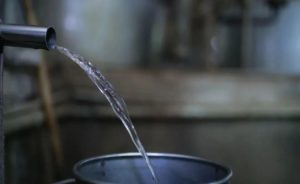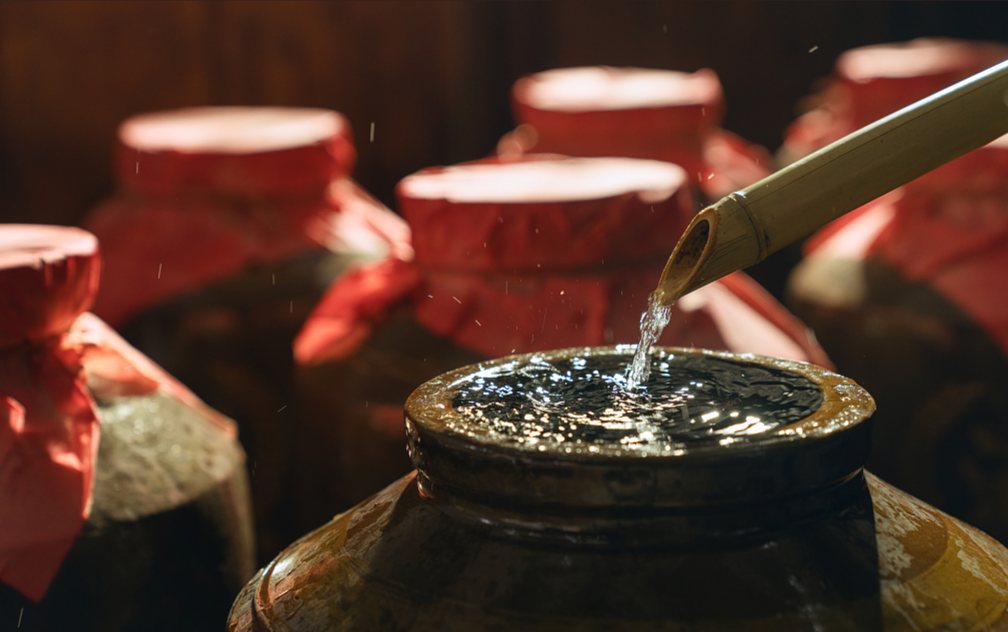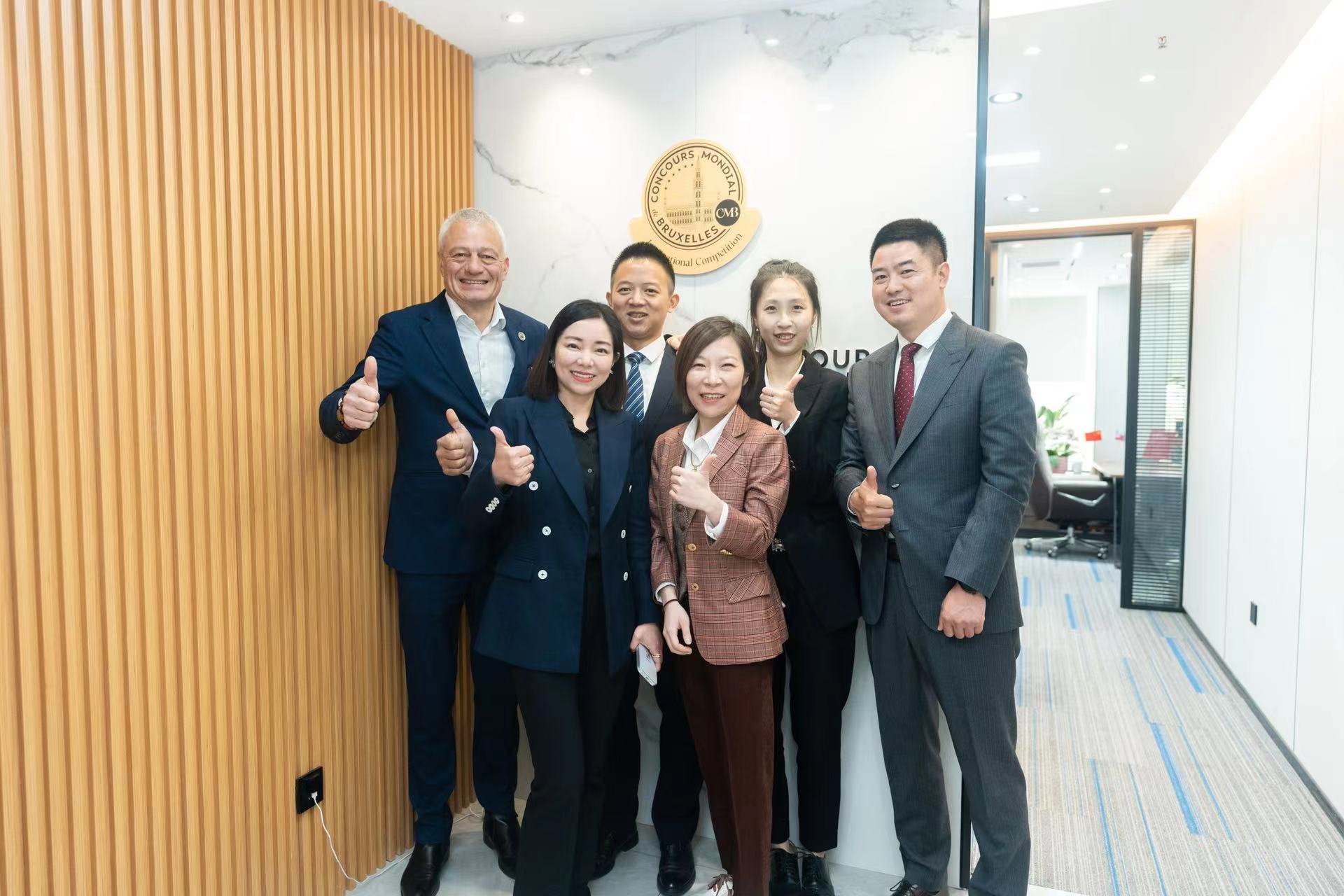The mysterious code that creates Maotai-flavor liquor (sauce-aroma baijiu)

Maotai-flavor liquor (sauce-aroma baijiu), with a long history of over one thousand years, originates from the traditional Chinese liquor-making craft. Renhuai City in Guizhou Province is the birthplace of Maotai-flavor liquor (sauce-aroma baijiu), the hometown of Maotai liquor, and the core producing area of Chinese Maotai-flavor liquor. Located in the northwest of Guizhou Province, at the midstream of Chishui River, Renhuai City enjoys a mid-subtropical humid monsoon climate with an annual average temperature of 16.3 degrees Celsius and 360 days of good air quality, which provides unique geographical conditions for the development of liquor industry. Chishui River is a collection of spiritual springs and beautiful waters, passing along Maotai Town of Renhuai City. The brewing method of Renhuai Maotai-flavor liquor (sauce-aroma baijiu) is combined with agricultural production in the Chishui River Basin and influenced by the environment. It follows seasonal production, producing distiller’s yeasts on the Dragon Boat Festival, and feeding materials on the Double Ninth Festival, which retains the traces of primitive local life and fine traditional craftsmanship in China.
Among various Chinese Baijiu, Renhuai Maotai-flavor liquor (sauce-aroma baijiu) stands out for its unique taste and quality. Behind the success of Maotai-flavor liquor (sauce-aroma baijiu) lies a mysterious code, namely “12987”. Today, let’s decipher the unique craftsmanship code behind Renhuai Maotai-flavor liquor (sauce-aroma baijiu) together and experience the perfect combination of tradition and craftsmanship.
1-year cycle
In the “12987” craftsmanship, the “1” represents a one-year production cycle, which means that the entire process from raw material input to liquor extraction takes exactly one year. Renhuai Maotai-flavor liquor (sauce-aroma baijiu) has strictly adhered to the traditional seasonal production of making liquor starter in the Dragon Boat Festival and adding sand in the Double Ninth Festival since ancient times, with one production cycle per year.
2 times material feeding
During the one-year production cycle, raw materials are fed in twice, the first time is feeding sands and the second time is roughing sands. “Sand” refers to the “Hongyingzi” glutinous sorghum used by local people in liquor making. Because the color of “Hongyingzi” is similar to the color of the river sand in the Chishui River, the locals refer to the crushed sorghum used for liquor making as “sand”.


9 times steaming
The “9” stands for nine rounds of steaming, which is a crucial step in the brewing process of Maotai-flavor liquor (sauce-aroma baijiu). Through repeated steaming, the starch in the raw materials is converted into alcohol.

8 times fermentation
“8” represents eight rounds of fermentation, during which temperature and time need to be strictly controlled to ensure the purity of liquor quality and the mellowness of taste. In the process of steaming and fermentation, the liquor body will continuously volatize harmful substances and bring in a large amount of microorganisms, aroma substances, and aroma precursors.


7 times liquor extraction
The “7” represents seven rounds of liquor extraction, which is a crucial step in the brewing process of Maotai-flavor liquor (sauce-aroma baijiu). Each round of liquor extraction requires careful operation to ensure the stability of liquor quality and the richness of taste. The style, characteristics, and quality of each round of liquor are different. Generally, in each round, the fermented grains in middle and upper parts are distilled into Maotai-flavor liquor (sauce-aroma baijiu), those in middle part are distilled into mellow liquor, and those at the bottom nearby the cellar sealing clay are distilled into cellar-bottom liquor. Maotai-flavor liquor (sauce-aroma baijiu), mellow liquor and cellar-bottom liquor should be stored in the warehouse separately.

The Maotai-flavor liquor (sauce-aroma baijiu), brewed through such a complicated process, needs to be aged in a cellar for more than three years before it can be released to the market. This is why Renhuai Maotai-flavor liquor (sauce-aroma baijiu) becomes even more mellow after being polished by time. In every sip, one can taste the four seasons of the year and experience the millennia-old wisdom of liquor making. The “12987” craftsmanship is not only the authentic brewing process of Maotai-flavor liquor (sauce-aroma baijiu), but also an important threshold for high-quality Maotai-flavor liquor (sauce-aroma baijiu). Although this craftsmanship has a small yield, a long brewing cycle, and high costs, it is unparalleled in terms of quality, aroma, and taste compared to other Maotai-flavor liquor (sauce-aroma baijiu) brewing processes. Renhuai Maotai-flavor liquor (sauce-aroma baijiu) carries the profound heritage of Chinese liquor culture and represents the exquisite craftsmanship of Chinese liquor making. At the same time, Maotai-flavor liquor (sauce-aroma baijiu) is also an important component of Chinese traditional culture, integrating the wisdom and emotions of the Chinese nation and becoming a valuable cultural heritage of the Chinese people.

